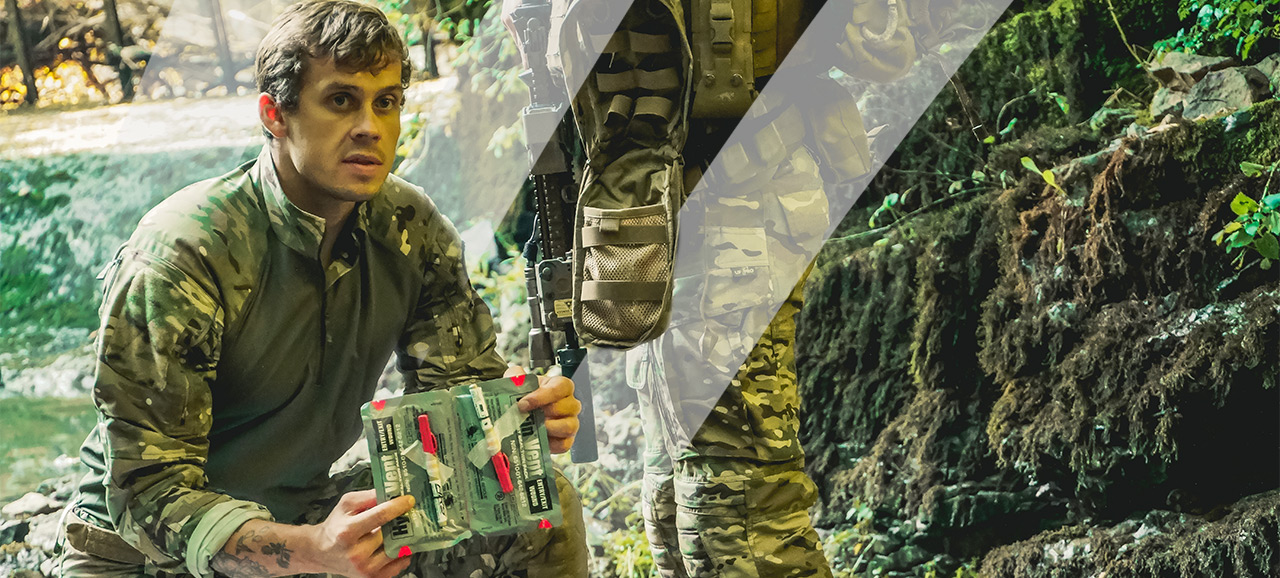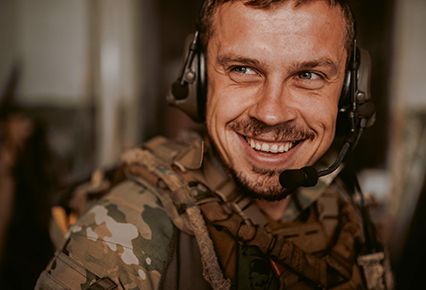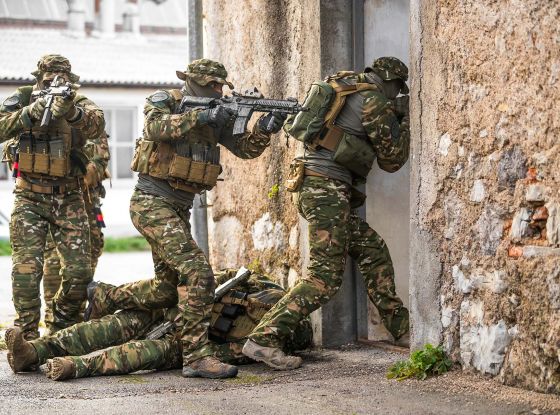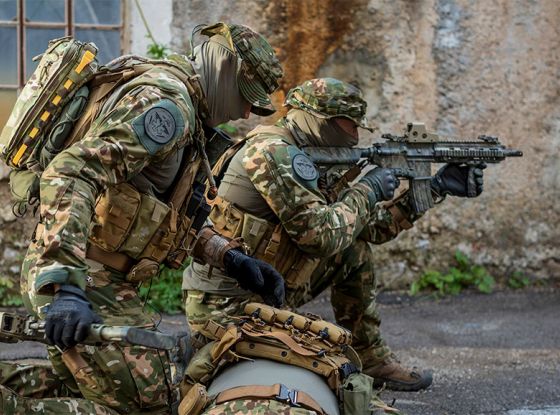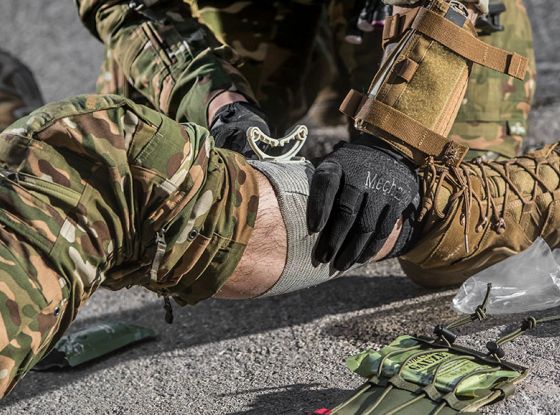The Individual First-Aid Kit (IFAK) is a compact but vital collection of life-saving items you as an operator carry with you at all times. In this post, an ex-SF combat medic reveals the essential items he keeps in his own IFAK pouch.
In this blog post:
Introduction
Guest post by Luka Zorenč
I’d like to start off with a simple statement: “Adapt to the situation.” For example, you don't smack a mosquito that’s landed on your testicles with the same force that you would hammer a nail into a board.
You have to adapt based on your operational environment and circumstances, as well as on what it is that you’re hoping to accomplish.
In other words, study your area of responsibility before going there. Talk to the instructor medic, talk to people who were already there and try to get them to talk about how their experiences played out in light of their capabilities.
Know before you go what the evacuation plans are. Know the enemy’s modus operandi, be it IEDs, small-arms fire, or suicide bombers. All this stuff is extremely useful to know.
I tell you this because I want you to study up on and appropriately prepare for the types of wounds that you can sustain when you get to wherever you’re going. Knowing the wound patterns will help you plan and organise your equipment more effectively.
A word of advice: Don’t go in carrying a tonne of equipment, as this will only slow you down. Would you carry with you a big bunch of ice packs if you were going to Antarctica? Probably not. Not the brightest idea, since you probably can improvise using what’s to hand—in this case, ice scooped right off the ground.
To be a good medic, you have to do your research beforehand. And check your ego at the door—ask for help or a second opinion, because, if you think you know it all, well, that’s when people are going to start dying.
Keep in mind that everything I’ve discussed so far and that I’ll discuss next are just rough principles. There’s no such thing as an ironclad or foolproof plan for preparing. As is true for me, you’ll have to take logistics into consideration.
As well, you’re going to have only so much budget to work with to buy what you need (which is why some resourceful guys rely on their ability to steal when there isn’t enough budget to cover everything).
So, let’s now talk about what you came here for: IFAK content selection.
Before we do that, tought, I’d better make sure you know that IFAK is short for “Individual First-Aid Kit”. It’s called that because it’s intended for use by you.
Also, you should know that prior to the IFAK acronym coming into recognised use, the military almost always decided on behalf of operators which first-aid items to issue. However, those regulation kits typically contained items to deal with only minor injuries and a very limited range of illnesses.
What’s in My IFAK?
Every soldier must carry an Individual First-Aid Kit. I do, and it’s optimised to save my life in various scenarios.
Here’s what I carry in my IFAK:
- ACE bandages (2)
- Combat gauze
- Chest seals (2)
- Nasal airway with lubricant
- Space blanket (great for fending off hypothermia while on the EVAC platform)
- NCDs (2)
- “Pill pack”
- Gloves (2 pairs)
- Duct tape
- Scissors
- Marker and combat casualty card (pre-filling your name, rank, blood type, and allergies is a good idea because it makes the medic’s job a bit easier)
Yeah, I know. All this gear adds bulkiness, which can make an IFAK kit difficult to deal with. But, trust me, you don't want a small pouch for this purpose because, then, you can't fit in all the items you really need to be carrying.
And some food for thought here: since this is your personal “BeepBeep” bag, you can include an MRE or two, some hand sanitizer, and—for really minor cuts and scrapes—an assortment of everyday household bandaids. Don't go too wild, though. Include only stuff you use often.
The reason I recommend that is because the presence of frequent-use items in your IFAK pouch will prod you to open it with some regularity—and doing so will cause you to take notice of what’s in there, which will likely motivate you to do some policing of your IFAK contents.
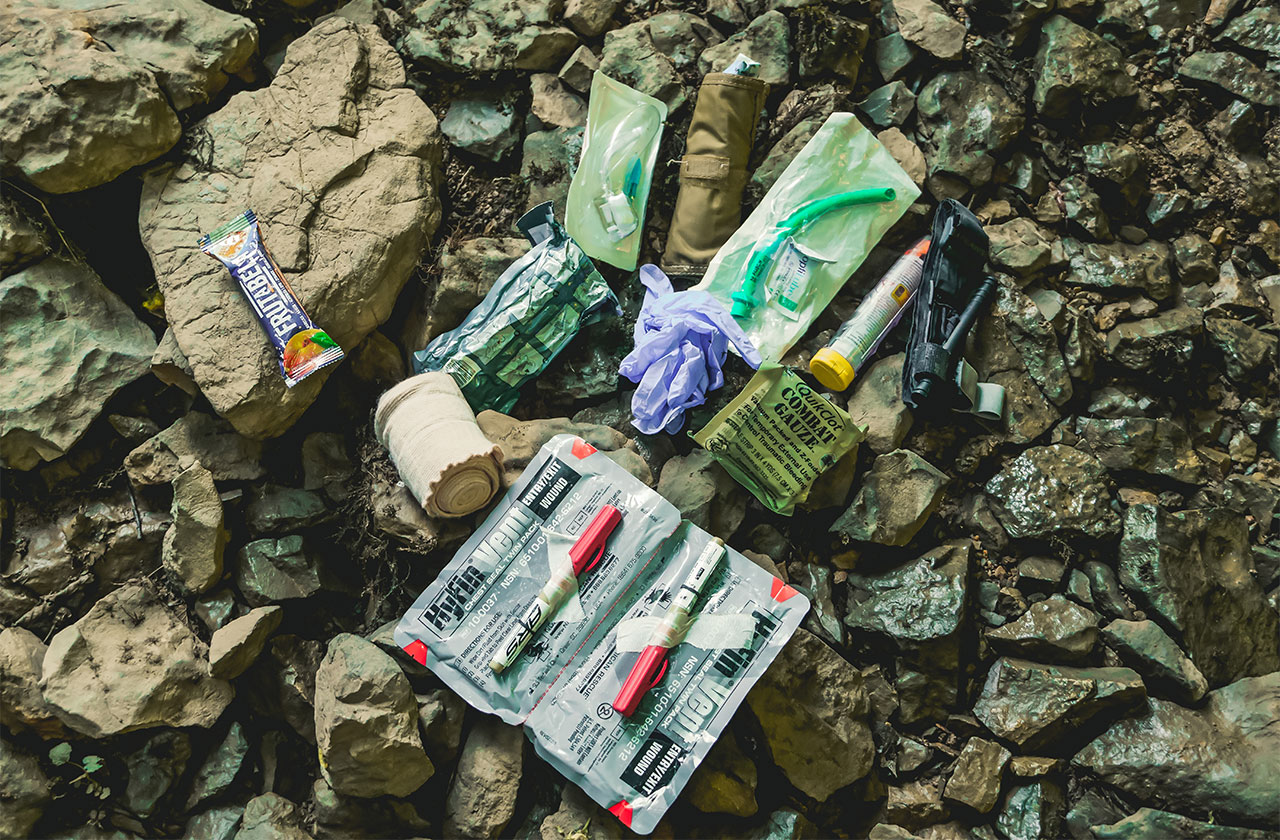
Extras That I, a Combat Medic, Carry with Me
If you are a combat medic like me, you should have in addition to and positioned adjacent your IFAK a big pouch filled with these medical and lifesaving equipment extras:
- CAT tourniquet
- EPI pen
- NPA with lube
- Cric kit
- 10G NCDs (also usable as needle cricothyroidotomy stopgap)
- Chest seals (2)
- Combat gauze
- Israeli bandage
- ACE wrap
- TCCC cards (at least a couple) plus marker
I also carry in my IFAK two tourniquets. Additionally, I have at least two on my body and one in the middle of my gear so that I can access it easily with either hand or both of them.
Still, don’t end up packing a house on your back—you need to maintain the ability to move tactically. A good rule of thumb here is that you’ve got the right amount of gear in your IFAK if you don’t have to struggle to close it.
Where medical supplies are concerned, another good rule of thumb is this one, borrowed from the movie “Forrest Gump”: “Life is like a box of chocolates and does not last long for fat people.” Put “wounded” or “sick” in place of “fat”, and you get the idea.
I also recommend keeping scissors on yourself. To prevent losing those scissors, attach them to a retractable keyring clipped to your belt.
It helps, too, to be a cross-trained “improvised” medic. These guys can carry not in their IFAK pouches but in their “normal backpacks” a lot of vital extras like medications/drugs, IV kits, and fluids—stuff they actually know how to use.
(Or maybe these medics are just newly assigned to the unit and they’re carrying all this because the group has stuck them in the role of being the mule). So, while additional equipment comes in handy, you do need to carefully consider whether you want to carry around the extra kilograms.
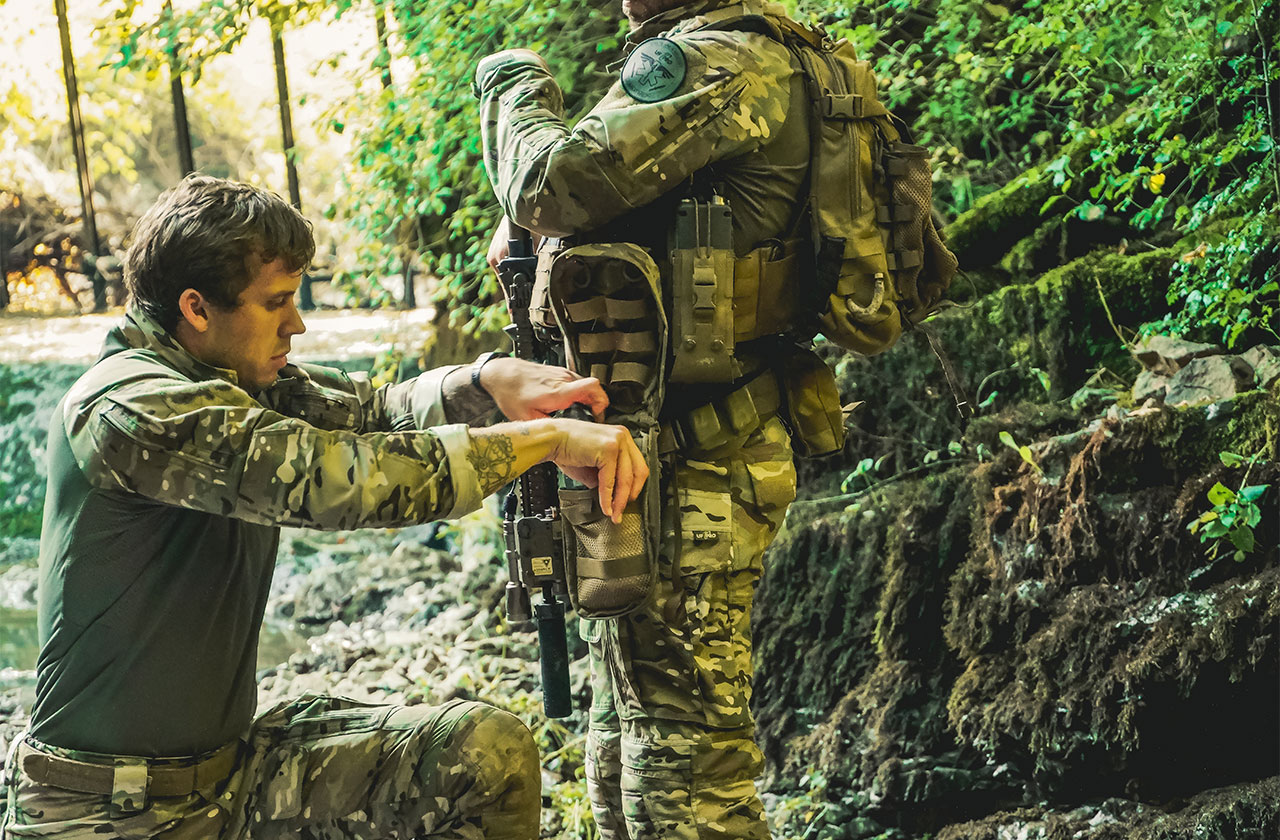
Summary
An IFAK is the individualized first-aid kit you'll carry with you wherever you go.
Don’t think of it as a portable field hospital because the items you pack must all fit inside a relatively small pouch.
So, pack this kit with only essential items.
What's essential? Well, it depends on the operational environment you're headed into, on the circumstances you'll face, and on the goals of the mission.
I've shared with you the essentials that go into my own IFAK, but the final choices are yours.
Just remember to choose wisely because the contents of your IFAK could spell the difference between life and death—namely, yours.

